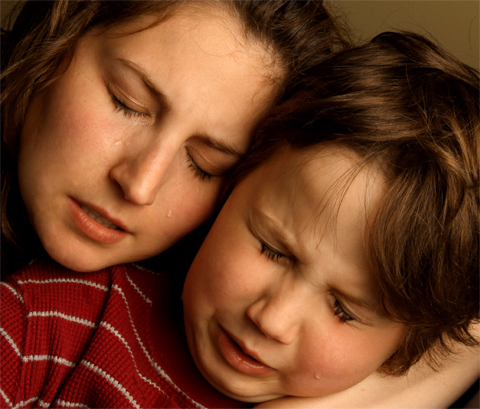In this article, Dr. Kim Pond studies grief in children 6 to 12 and makes suggestions for the church’s response to a child’s loss of a significant loved one.
Summary
The objective of this article is to assist Christian educators as well as the Christian community as a whole in understanding the characteristics of childhood grief by noting the information obtained in a qualitative study composed of past childhood grievers. The participants were young adults between the ages of 18 and 22 who had lost a significant familial or relational figure when they were between ages 6 and 12. The overall purpose of the investigation was to identify constructive ways in which to support childhood grievers as they work through the grieving process.
Excerpts from the “Importance of Relationships” Section
It is vital that the church continue to be a consistent presence for children who may not have the needed support and assistance from their families when they are grieving. The desire of the children was not to forget what had occurred, but to find some means to gain comfort and clarity concerning the death as well as how they were feeling. Even if children were able to handle the grieving experience they were enduring, there is an area in which the church’s interaction and assistance could be beneficial. Believers in Christ cannot impose their presence, but being aware of the situations the children are in can allow them to support and assist the adults within the family the children are going to for counseling and answers.
The undercurrent of hope found within the church’s faith was a sustaining power for many childhood grievers during their loss experience and it still is for many even today. The most obvious characteristic of each participant’s story was the importance of prior relationships with the individuals associated with a church who stepped in to assist him or her following the death. These participants identified the importance of fostering an atmosphere of trust, care, concern, and an openness to listen and help when it was needed. The thoughts shared demonstrate the importance of developing and maintaining strong relationships.
Suggestions for Assisting Future Childhood Grievers
When asked to give the church some possible concrete actions, not one participant hesitated before answering. These suggestions are not inclusive of every childhood griever, but are nonetheless important to those who may be seeking to assist children and their families in the grieving process.
•Prior to grief experience:
– Get to know children in congregation
– Build relationships based on trust
– Know what is occurring in the child’s life under your care
•Communication vital: Let them know of your concern.
– Verbally: Tell them you are there if they need you and that you care about them
– Ask: How they are doing and if they have questions
– Technology tools: Call them or send them e-mails
– Be an encourager: Through actions, prayer cards or notes, food, hugs, smiles
•Do not assume they know what is going on.
– Explain
– Listen more than you talk
•Focus on the child holistically
– Education: Teach them about difficult life situations and answer their questions, death, grief, use books and stories to help them understand
– Spiritual: Have ministers who are geared for children, provide counseling if needed, focus on immediate and follow up care.
– Emotional: Help them find numerous positive ways to express themselves through crying, drawing, or writing.
•Give them the freedom to express themselves without censor.
•Focus attention on children of immediate and extended family not just adults.
•Establish mentoring program with past childhood grievers as mentors.
•Educate adults on childhood grieving
Download Entire Article
Discipleship Begins With Our Children
Children need meaningful, shared-life relationships. That’s the heart of discipleship. DiscipleLand’s family of Biblical resources forms a complete Children’s Discipleship System™ – an intentional, relational, and transformational process designed to help children know God intimately, love Him passionately, and to serve Him selflessly. Click here for your Free Catalog
Learn more by clicking on the following:
• Samples
• Nursery and Toddler
• Preschool
• Kindergarten
• Elementary
• Kids Church
• Midweek
• Free Catalog
___
About Dr. Kim Pond of Tulia, Texas
Kim Pond (Ph.D., Talbot School of Theology) is a grief resource person with Kornerstone Funeral Directors, in Tulia, Texas. She teaches adjunct at Waylan Baptist University. E-mail: srpond-tulia@cebridge.net
Christlikeness: An Essential for Disciples taken from the Christian Education Journal, CEJ: Series 3, Vol. 9, No. 1. Copyright 2012; p 43-64. All rights reserved. Permission granted by Christian Education Journal.
Want to share this article outside of your ministry? Want to post this electronically? Please contact Dr. Kevin Lawson, Editor for permission Editor.cej@biola.edu.
Subscribe to Christian Education Journal: cej.subscriptions@biola.edu






